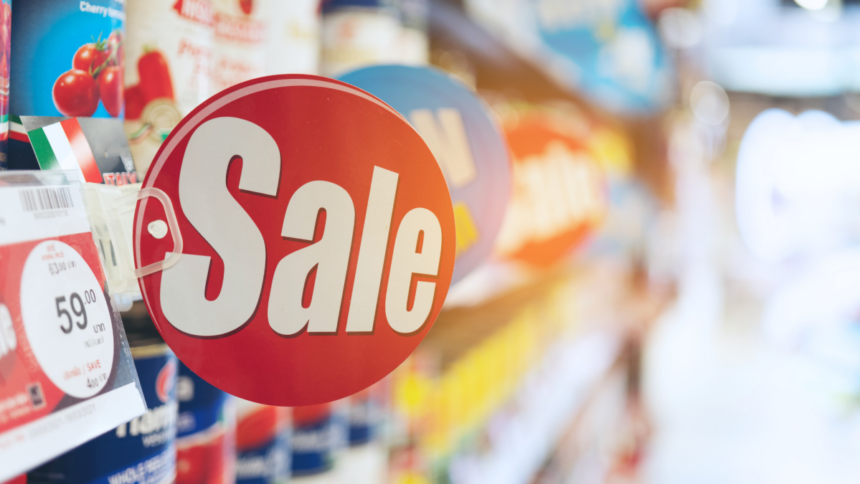The Rising Cost of Living: Understanding Rainchecks as a Budgeting Tool
In recent times, the cost of living has noticeably escalated. While inflation rates associated with necessities like groceries have subsided from a staggering peak of 13.5% experienced a few years back, prices across various items remain considerably inflated—and it is likely they will persist at this level.
This situation has transformed activities such as bargain hunting, using coupons, and capitalizing on discount sales into essential components of effective financial planning. However, meticulous planning becomes futile if the discounted items you seek are unavailable at the store. For example, if a grocery store advertises an incredible price on a staple food item, it’s unhelpful if they are out of stock when you arrive; this situation forces you to either purchase a pricier alternative or leave empty-handed. This is where stores that provide rainchecks become invaluable.
What is a Raincheck?
The concept of a “raincheck” traces its roots to the late 19th century, originating from the practice of baseball teams ensuring fans wouldn’t lose their ticket money in the event of a canceled game due to rain. Fans were issued rainchecks, permitting them to attend a rescheduled game without incurring extra fees. While the term remains pertinent in that context, it has also evolved into a common expression used for rescheduling or canceling social engagements.
In retail, a raincheck is provided when a sales item is out of stock. In 1989, the Federal Trade Commission (FTC) implemented the “Availability Rule,” requiring grocery stores to maintain sufficient stock levels for advertised sale items. This regulation aims to eliminate “bait-and-switch” tactics that entice shoppers with low prices only to push them towards relegating purchases of pricier alternatives. While the rule does not explicitly mandate stores to issue rainchecks, providing them often serves as a straightforward way to safeguard against consumer complaints when advertised items are unavailable. Various other retailers extend similar raincheck policies beyond groceries.
However, exceptions to the Availability Rule exist, and each retailer may have its unique raincheck terms. Generally, items labeled as “limited supply” do not qualify for rainchecks (and such sales typically clarify the no-raincheck policy), as do clearance items intended for stock liquidation. Additionally, items slated for delivery at a later date, like large appliances or furniture, usually do not come with raincheck options.
Most raincheck policies provide a window of approximately 30 to 60 days for redemption. If you visit a grocery store drawn by a significant discount on a particular brand of chips but find them out of stock, you can request a raincheck (in physical or digital form) and return when they restock, still benefiting from the sale price, even if weeks have passed. Sometimes, extensions on rainchecks may be granted upon request, effectively allowing for a raincheck for the raincheck itself. Associating with stores that honor rainchecks guarantees consistent access to sale prices.
Where to Find Stores That Offer Rainchecks
To maximize the benefits of rainchecks, focus shopping efforts on retailers that provide them. For local stores, it is advisable to inquire directly to determine whether they have raincheck policies in place. Several chain retailers that have publicly shared their raincheck standards include:
-
Albertsons/Safeway allows rainchecks on eligible items accompanied by coupons, valid for 90 days, enabling savings on products like cereal even when out of stock.
-
CVS issues rainchecks for “regularly available merchandise” if no alternative is found, with no expiration.
-
Best Buy provides rainchecks for specific in-store items only (online purchases do not qualify).
-
Hobby Lobby offers rainchecks on selected sale items.
-
Sears may provide rainchecks, but it’s advisable to confirm with the individual store.
-
Target issues rainchecks for out-of-stock sale items, valid for 30 to 45 days, depending on regional policies.
-
Walgreens grants 60-day rainchecks for items purchased in-store only.
-
Publix offers rainchecks for items advertised outside the store at a discounted price, valid for 30 days.
-
Shop Rite grants rainchecks lasting 60 days.
Understanding which stores in your vicinity offer rainchecks can facilitate better access to bargains, even on popular products that may quickly sell out. This small advantage can significantly impact budgeting efforts, making it easier to save money during trying financial times.












